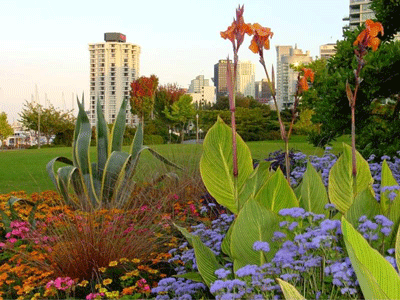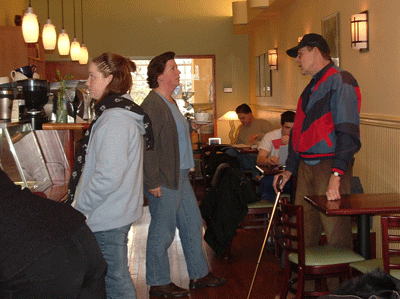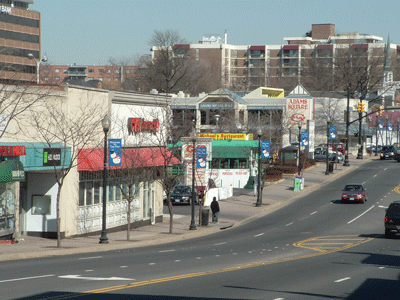Tales of a 21st Century Gypsy
February 18, 2004. Barbecue, chapattis, and wire transfers.
Walking through Arlington, the smell of warm barbecue in cold air drifts through the street. I spin back to a different time and place. Itís 1976, I am in Vancouver, at Habitat Forum, the peopleís parallel to a United Nations conference. Arriving in Vancouver in late May, I took a ferry out to the Habitat Forum site, a big open area where abandoned airplane hangars had been converted into airy meeting rooms. The designers took pride in local themes, using local timber, built by local artisans
and workmen, punctuated by totem poles and native motifs. I was very young, still looked like Alice in Wonderland with long wavy blonde hair. I was cold and wet on the ferry. A bear of a man working on the dock took me under his wing, wrapped me in a blanket, kept an eye out for me, became a friend. That place was humming with life, construction still underway to get it ready for the crowds to come, smell of wood smoke and sawdust and grilling meat. Barbecue.
By the time the party began Ė the UN meetings and the Forum Ė the sun came out, the flowers glowed, the air warmed into late spring. That's Vancouver, nine months of rain and then the sun comes out and the city shines. Everyone was equal at the Forum. Thousands of people filled the hangars in huge public discussions of how cities work, housing in the developing world, and the visionary ideas of Buckminster Fuller and Margaret Mead. I donít remember what they talked about. What I do remember is the mingling of people and the openness. I, a twenty-year-old college dropout working as a go-fer could get up and voice my opinions just as could Ė and did Ė Pierre Trudeau, then prime minister of Canada. He wasnít the invited
 Photo by Garry45, http://community.webshots.com/user/garry45
Photo by Garry45, http://community.webshots.com/user/garry45speaker, he was in the audience with the rest of the crowd. If you didnít know his face Ė and many in that global audience did not Ė you wouldnít even have known who he was. But the buzz went through the hall, ďover there, the one who just spoke up, yes, the prime minister, thatís him.Ē
It was a heady experience for a twenty-year-old dropout.
The smell of barbecue on a February afternoon in Arlington brought it all back, that spring in Vancouver almost thirty years earlier. Coming back to Arlington is always confusing. In some ways itís the same, but I donít know if I am part of this place any more or not. Walking in the streets I run into people I knew from work with the county, from my favorite coffee house on Columbia Pike, from the gym. Am I back, they ask, or just visiting? Well, neither.
Iím back at Rappahannock Coffee House editing the book. That feels absolutely right, I wrote it there, so spending my mornings there clicking away on my laptop making the final revisions is just what I need to do. My friends there knew I was writing it, it is good to be able to tell them that Iím finishing it off. Even if Brian isnít the owner any more, and everyone liked it better when he was around. Lots of the regulars are still there Ė Gayle with her yoga studio across the street, Anne the para-

